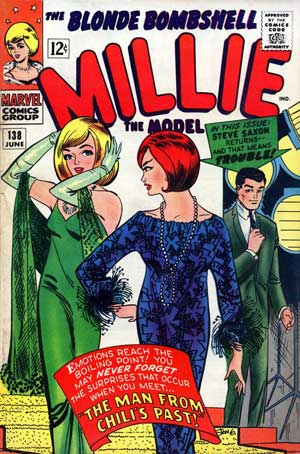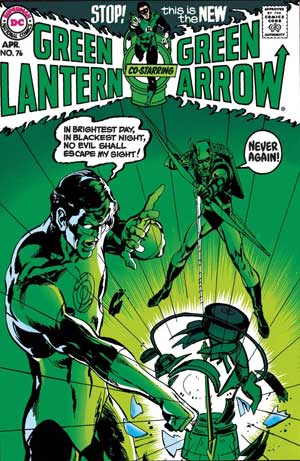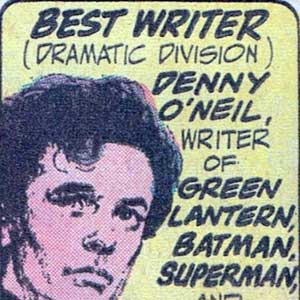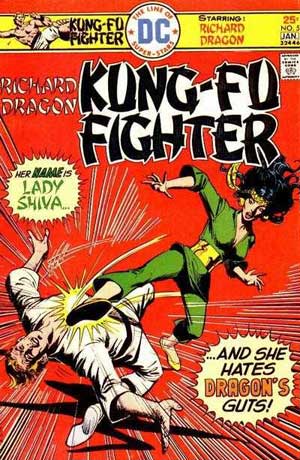Dennis O’Neil, Comics, and Social Justice
By Hervé St-Louis
June 13, 2020 - 21:10
 |
O’Neil’s importance in comics was in the latter Silver Age where he revamped several important characters, aligning them to the social and cultural events of the late 1960s. His most significant work in the period was to revamp the Green Lantern series by adding Green Arrow to whom he had given a new attitude in the Justice League of America series and paired with Black Canary. The Green Lantern/Green Arrow (1970) series explored later 1960s American politics, chronicling the anti-war movement, and the Civil Rights. While today, this would paint O’Neil as a social justice warrior, he also contributed to the return of Batman (1970) to his noir detective roots by taking over comic strip cartoonist Frank Robbins’s writing duties.
O’Neil’s first challenge was to re-imagine the failing Wonder Woman (1968) series by adding a James Bond’s spy thriller vibe to the series, removing her from her fantastic and melodramatic stories where her mother ruined her mind and various versions of herself chased Steve Trevor and other boys. This Wonder Woman had no powers but fought evil as a post-modern second-generation feminist. O’Neil’s work was criticized because depowering Wonder Woman was deemed a symbol of a weakened woman for some feminists.
 |
In Green Lantern / Green Arrow (1970), O’Neil took a similar activist but also pragmatic position which mirrors the Jesuit university he attended. Green Arrow challenged Green Lantern about his respect for authority and convinced him that evil can lurk behind benevolent structures. Thus, Green Arrow argued that Green Lantern had to act even if it conflicted with the Guardians of the Universe’s objectives. In that series, O’Neil introduced DC Comics’ first Black superhero, Green Lantern John Stewart. He revealed that hipster Green Arrow had unattended his own ward, Roy Harper, also known as the Emerald Archer’s sidekick Speedy, when the latter’s drug addiction was revealed. The topics tackled in the Green Lantern / Green Arrow series propelled O’Neil’s public profile.
 |
Although back and forth between DC Comics and Marvel Comics, it is with the former as the Batman editor that he made major contribution to the world of comics, continuing to shape Batman into a darker and grittier character that would become the most popular hero a the publisher. O’Neil mixed liberal politics with comics plentifully to the extent that this perspective seems to have become the default one in comics and is only challenged today by movements like Comicsgate who often forget that comic books and comic strips have always been political. This is Dennis O’Neil’s legacy.
Writer Dennis O’Neil born on May 3, 1939, died on June 11th,
2020 of natural causes.
 |
Related Articles:
Invisible Scarlet O'Neil Returns
